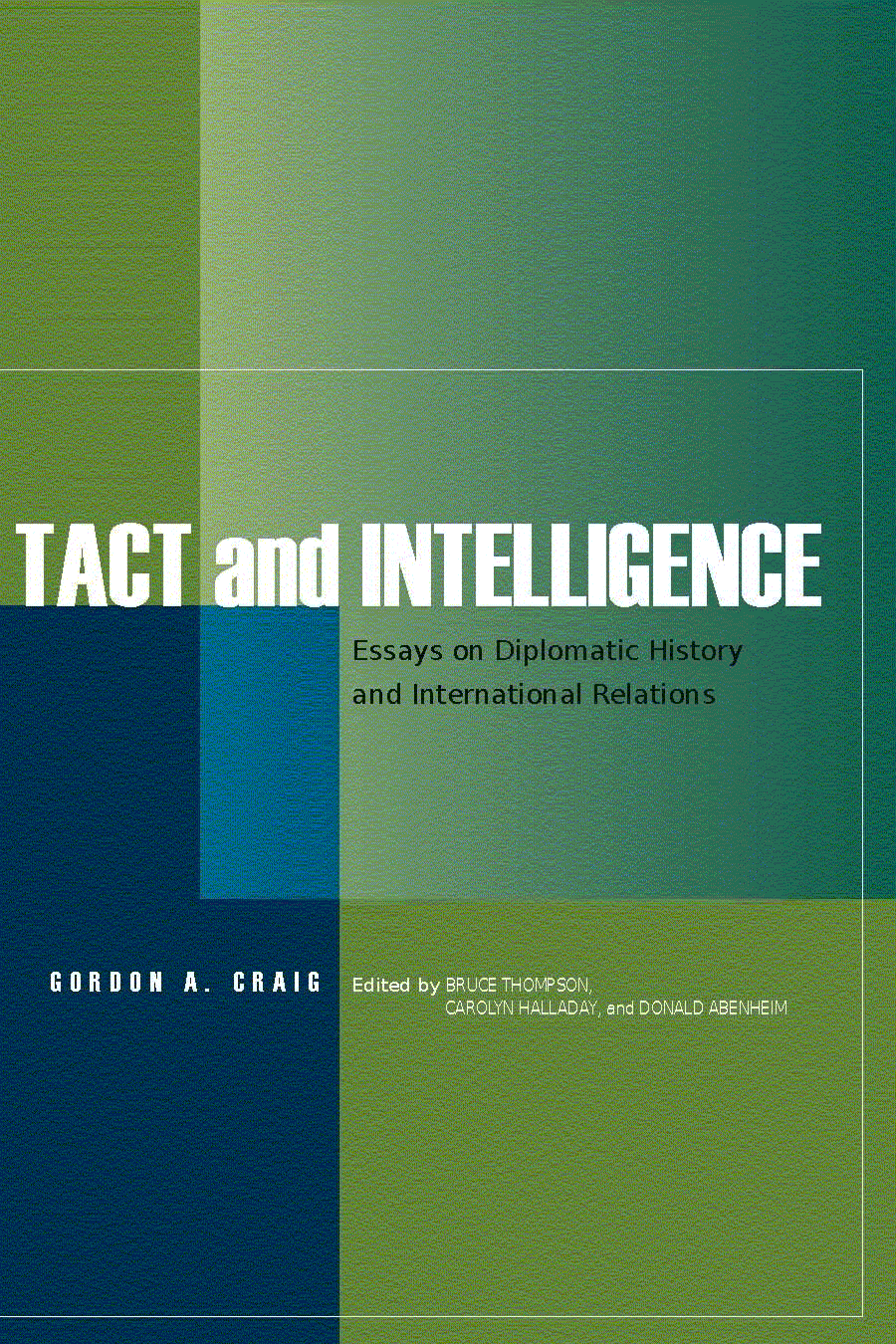
![]()
“Gordon Craig began life as a diplomatic historian and developed into something much,
much more. Relations between states, he realized, were relations between people, and those
people were shaped by their culture. Thus it was the culture of Germany that largely shaped
the history of Europe and with it the world. Craig devoted his life to mastering it in all its
aspects—political, intellectual, cultural, social, and, not least, literary. Nothing escaped him,
and he set forth his learning in beautifully lucid prose that made him one of the master-
historians of the twentieth century.”
—Michael Howard, formerly Chichele Professor of the History of War and Regius Professor
of Modern History at Oxford University
Ranging in focus from the advent of an American diplomatic style, to the changing social and political context of the European balance of power, to the clash of personalities and personal histories among leaders on both sides of World War II, the sixteen essays gathered in this volume abundantly demonstrate the breadth and depth of understanding that Gordon Craig brought to his career-long study of diplomatic history and international relations.
Gordon A. Craig (1913–2005) was for more than half a century one of America’s foremost historians of Germany and Europe. He was the J. E. Wallace Sterling Professor in the Humanities at Stanford University and (in 1982) the president of the American Historical Association. He was a member of the German Federal Republic’s Orden Pour le Mérite für Wissenschaften und Künste, and (in 1999) the winner of the first Benjamin Franklin– Wilhelm von Humboldt Prize of the German-American Academic Council.
Bruce Thompson teaches at the University of California at Santa Cruz; Carolyn Halladay and Donald Abenheim both teach at the U.S. Naval Postgraduate School in Monterey, California.
360 pages. Paperback only. 2008.
ISBN 978-0-930664-26-8